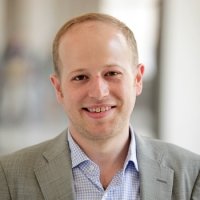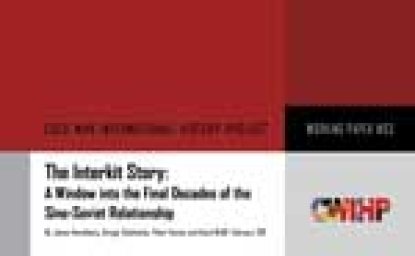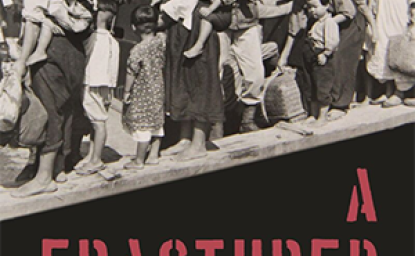Kim Gu on Reunification and War, 1948



A recently unearthed conversation with veteran independence activist Kim Gu (Kim Koo) provides new details on how leaders in southern Korea saw North Korea in 1948 and their predictions about the likelihood of a war in Korea.
NKIDP e-Dossier no. 19
Kim Gu on Reunification and War, 1948
Charles Kraus
June 2015
"Even if the Communists stop expanding the Korean Red Army for three years to come, all the efforts in South Korea will hardly be able to build up an army to the present strength of the red army."
This is what Kim Gu (Kim Koo), a well-known Korean nationalist who worked hard during World War II for Korean independence, ominously told the Chinese Minister Liu Yuwan in July 1948. A south Korean based leader, Kim’s warning arose out of what he had seen during a visit to the northern zone of occupation of Korea in April 1948.
The U.S. Military decided to divide Korea in 1945, mainly as a matter of convenience. The United States would administer territory south of the 38th parallel, while the Soviet Union would bear responsibility for the northern zone. Although Korea’s division was meant to be only temporary, the Americans in the south and the Soviets in the north never came to an agreement over the future of Korea. After the collapse of the US-Soviet Joint Commission in 1947, the matter was handed over to the United Nations. The United Nations Temporary Commission on Korea (UNTCOK) then declared that elections would be held in Korea in May 1948.
At the same time, the then ruling indigenous body in the north, the North Korean People's Committee, announced that it would convene a meeting for Korean leaders from both zones of occupation. Held in Pyongyang from April 19-22, 1948, the meeting’s organizers claimed to want to find a Korean solution for Korea’s problems. Most of the individuals in attendance announced that they would not participate in the UNTCOK organized elections, Kim Gu and other leaders from the south among them.
Kim Gu’s work with Korean leaders from the north in order to achieve reunification was controversial, to say the least. Liu Yuwan alluded as much when he remarked to Kim that, “A damage has been done to that record by your recent activities in connection with the so-called North and South Korean Leaders' Conference held in Pyongyang.”
Kim Il Sung (left) and Kim Gu in Pyongyang in April 1948.
Kim, however, did not consider himself a communist. He justified his participation in the Pyongyang summit by stating that he wanted “to see the actual things happening in North Korea,” not because he fully supported the policies of the North Korean People’s Committee.
Kim probably even left Pyongyang with a worse view of the north than he held prior to the April summit. In addition to his alarmist commentary about the strength of the Korean People’s Army (KPA), Kim was convinced that if the Soviet Union wanted war on the Korean Peninsula, they would achieve total victory—and quickly. “The Russians will easily set it [the Korean People’s Army] on its southward swoop without incurring the blame for the moment a government is set up here, the People's Republic will be proclaimed.” Kim fretted, at least in private with Liu Yuwan, that a socialist republic could soon rule across the peninsula.
In retrospect, Kim Gu was only partially right. The Soviet Union did give a conditional greenlight for an invasion of southern Korea in early 1950, but it was only after the constant badgering of Kim Il Sung. The initiative for war came, in large measure, from Koreans, not the Soviets or the Americans.
Likewise, Kim Gu did not anticipate a firm American commitment to the defense of the Republic of Korea. Because of America’s intervention in summer 1950, a peninsula-wide “People’s Republic” never came to be, despite some of the Korean People’s Army’s stunning victories during the early stages of the war.
Kim Gu, of course, did not live long enough to see how his predictions panned out. He was killed by an assassin in 1949, nearly one-year from the fateful day of June 25, 1950.
Charles Kraus is a Program Associate with the Wilson Center's History and Public Policy Program and a Ph.D. candidate in history at The George Washington University.
***
"Record of Conversation between Kim Gu and Liu Yuwan," July 11, 1948
[Source: Syngman Rhee Institute.]
(To Be Kept in Strict Secrecy)
The following is the gist of the talks carried on between Mr. Kim Koo [Kim Gu] and Minister Liu Yu-man [Liu Yuwan], Chinese Minister at Seoul, over an hour beginning from 11:00 a.m., July 11th, 1948, in a surprise visit made by the Minister.
Liu: I have been holding you in great esteem as an honest man, more than for any other reason. I myself am a plain outspoken man, though I am a diplomat, my appointment to Seoul being the very first job of official character. I have come to talk with you as between an honest man and an honest man, even if I have to offend you sometimes.
Kim: (merely nods appreciation.)
Liu: Ever since my return from the trip to Shanghai as one of the UN Commissioners, not a day passed without my wishing very much to see you. I know your daughter-in-law is away to China. So is your son. Um, too, is not living with you. I never thought any one else who could interpret for me. So you see how I could not come and see you as often as I wished.
Kim: It is true that those you mentioned are not with me now, but still I have someone else who can serve you as interpret.
Liu: I have a letter for you from O Chul-sung, but left [it] at the legation. You shall get it later on. Chinese Foreign Minister Wang Sish-gul [Wang Shijie] will soon follow up with his own. Actually President CHiang Kai-shek [Jiang Jieshi] meant to do so himself, but he was advised by the Foreign Minister to wait till he received my report of this interview. I know all these three letters will convey one same message, that is, to ask you to cooperate with Dr. [Syngman] Rhee. We all heartily wish Dr. Rhee and you and Dr. Kimm Kyusic [Kim Gyu-sik] concredtedly to uphold the South Korean regime. There is a Chinese proverb saying, "Brothers may quarrel within the house, but they must not invite, in so doing, outsiders' insult." Whatever differences you may have among yourselves, you are still brothers in the face of the common danger of the Soviet-dominated world communism. I regard Kim Sin, your son, as a brother. So you can take my words as these addressed by a son to his own father from the bottom of his heart, even if they happen to hurt. If you believe in Communism and mean to subscribe to it, though I refuse to suppose you do, please say so. And we shall part political enemies never to see each other again.
[Liu:] Whatever differences you may have among yourselves, you are still brothers in the face of the common danger of the Soviet-dominated world communism.
Kim: (gravely smiling) I knew all the time what was coming. As a fact I have something on my mind, which I have kept away even from the closest of my colleagues and which I think it improver to divulge to you now. I tell you this much; in no distant future, I will make everything clear, whether my friends, including you, like it or not. I hope you can wait, can't you?
Liu: I do not ask you to tell me what is in your mind now. On the contrary, I even ask you not to. Well, I have done with the message I am entrusted with, but I should like with your permission, to give my personal views which, I hope will perhaps be of some use in making your final decision regarding what you are turning over in your mind.
Kim: (seems to show an expression of civil acquiescence, though not of anything like welcome.)
Liu: Whenever I sounded Dr. Rhee on the possibility of his cooperation with you, his answer invariably was, "If he wants to work with me, I am willing to go more than half way to meet him." I always went away with an impression that Dr. Rhee would welcome the idea of offering, say, the vice presidency to you. I know you are above it all and may rightly feel hurt at such a point being touched at all. You may say, "Go to Hell with the vice presidency or any other governmental position!" But, if you mean to cooperate with Dr. Rhee, holding such a position in the now-forming government will be, at least, of symbolical value in that it will clearly demonstrate the rightist unity to the people, especially to your own bewildered followers. You have a long glorious record of patriotic deeds behind you. A damage has been done to that record by your recent activities in connection with the so-called North and South Korean Leaders' Conference held in Pyongyang. I know of instances where Koreans, when taken prisoner in North China by the Communists and in fear for their lives, were found explaining to their captors, "We are Mr. Kim Koo's followers; you know how he works for the Communist cause." It is lamentable for all your friends to see your glorious past record undone in this way.
Kim: I know that myself well enough. The Communists in the north take me for their collaborator. As I told you, everybody will soon know where I stand. I do not mean, however, to take part in the South Korean Government. You know Dr. Rhee is captivated, so to speak, by the Democratic Party people and has got to do as they wish him to. If I go in with them, unavoidable differences will get up troubles. I had better stay out. I hate being involved in a dirty political squabble.
[Kim:] The Communists in the north take me for their collaborator. As I told you, everybody will soon know where I stand.
Liu: That seems to constitute rather a reason for going in then for staying out. Dr. Rhee has under his many old colleagues of your such as Sin Ik-heui, Li Chung-chun, and Li Bum-suk. Unless they are strengthened by your participation, everything will go the Democratic Party way. Dr. Rhee will not be able to restrain that party single-handed, even if he sometimes finds its advisable to do so for the sake of the country. Your going in and checking them will strengthen Dr. Rhee's hand, while your desertion will eventually mean leaving the Doctor to the mercy of that party who you believe, should not control the destiny of the nation unrestrained and unchecked.
Kim: (after repeating what he already said, political squabble and all that) Moreover, through a certain political party's smearing campaign, I am universally dubbed as anti-American, though I regard only China and the United States positively helpful neighbor nations of Korea. Since we need the American aid for our national up-building, my presence in the government setup will prove prejudicial to the national interests by chilling American sympathy.
Liu: You are wrong. Even Dr. Rhee was once maligned as being anti-American. Now the Americans have to come round and support him. Korean government is, after all, the exclusive affair of the Koreans. It does not matter how you are thought of by the Americans in Korea. They are going anyway. Even Gen. Hodge will be recalled in time, perhaps with honour, without disgrace. But go he will. Your unity and while-hearted UN backing will probably expedite their going, if anything.
[Liu:] Even Dr. Rhee was once maligned as being anti-American. Now the Americans have to come round and support him.
Kim: Do you think that China will be the very first nation to recognize the South Korean Government?
Liu: I am not in a position to assure you of that. But I have no doubt that China, America and England will do so simultaneously at the earliest possible opportunity.
Kim: Don't you think it possible for America to back down?
Liu: Impossible, for the American people is solidly backing Korean independence.
Kim: One of the motives for going to the Leaders Conference was to see the actual things happening in North Korea. Even if the Communists stop expanding the Korean Red Army for three years to come, all the efforts in South Korea will hardly be able to build up an army to the present strength of the red army. The Russians will easily set it on its southward swoop without incurring the blame for the moment a government is set up here, the People's Republic will be proclaimed.
Liu: It will not happen unless Russia means war which she doesn't. In the past Russia reconciled twice before international coercion, once from Korea and the other time from the Laotung [Liaodong] Peninsula. Probably she will do so again under the impact of the roused world opinion working through UN. If the government now being set up is to be an American puppet just as the northern regime is a Russian one, I could easily understand your stand to collaborate with neither. With UN backing, it will be a sovereign one, a base to win union from. The weaker you find it, the more unreserved should be the weight you throw in.
Author


North Korea International Documentation Project
The North Korea International Documentation Project serves as an informational clearinghouse on North Korea for the scholarly and policymaking communities, disseminating documents on the DPRK from its former communist allies that provide valuable insight into the actions and nature of the North Korean state. Read more


Cold War International History Project
The Cold War International History Project supports the full and prompt release of historical materials by governments on all sides of the Cold War. Read more


History and Public Policy Program
A leader in making key foreign policy records accessible and fostering informed scholarship, analysis, and discussion on international affairs, past and present. Read more




